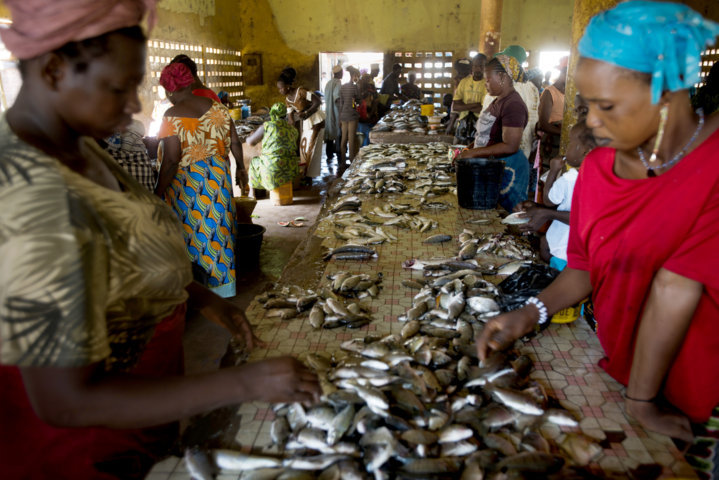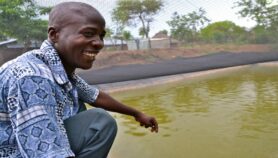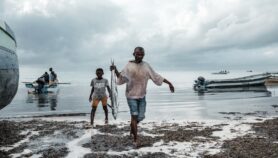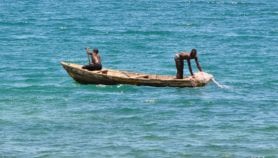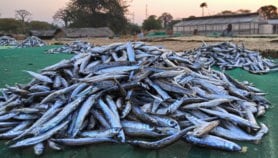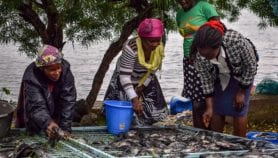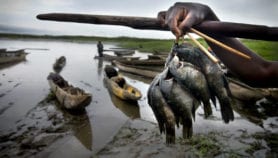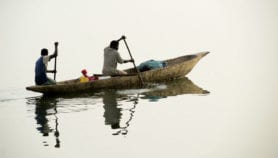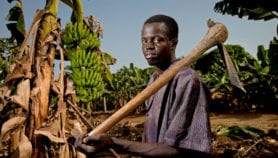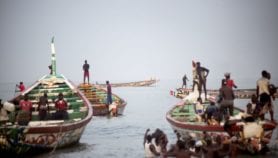By: Gilbert Nakweya
Send to a friend
The details you provide on this page will not be used to send unsolicited email, and will not be sold to a 3rd party. See privacy policy.
[NAIROBI] Africa is endowed with abundant resources for fish farming but has a relatively lower consumption compared to other continents due to low investments in trade, experts say.
During the launch of a pan-African project in Kenya last month (2 March) to strengthen fish trade on the continent, the experts added that Africa has the potential to develop fisheries and aquaculture to play a greater role in promoting food security, providing livelihoods and supporting economic growth.
However, they said little has been done to promote the fisheries sector, a view shared by governments and policymakers.
“This project will enable the alignment of policies at the continental level and openup fish trade that we believe will have a strong effect in alleviating poverty in some of our poorest regions.”
Ahmed El Sawalhy, AU-IBAR
“Trade is constrained by inadequate market and trade infrastructure and poor policy implementation, complex and unaligned trade rules and poor market information,” said Felix Koskei, Kenya’s cabinet secretary for agriculture, who launched the project, noting its potential to improve food security and reduce poverty.
The European Commission-funded project implemented by WorldFish, the New Partnership for Africa’s Development (NEPAD) and the African Union Inter-African Bureau for Animal Resources (AU-IBAR), is intended to strengthen fishing value chain in Africa.
A statement issued by the WordFish, NEPAD and AU-IBAR to highlight the launch noted that Africa accounts for only 4.9 per cent of global fish trade. It called for efficient fish trade to improve the livelihoods of 12.3 million Africans with jobs in the fisheries and aquaculture sectors.
The project will focus on sustainability to give better access to intra-regional markets in Africa.
Sloans Chimatiro, the project’s leader from the CGIAR WorldFish, said it is important to conduct research to inform policy formulation and implementation. “We need to transform rural economies, especially for fish-dependent communities and this project will help [in] eventually reducing rural-urban migration,” Chimatiro explained.
Steve Wathome, European Union (EU) delegation to Kenya's programme manager for agriculture and rural development, said the EU would invest 5 million euros (about US$5.3 million) in the four-year project to help address fish trade challenges in Africa.
AU-IBAR director Ahmed El Sawalhy said the development of domestic and intra-regional trade of fish is necessary to foster regional integration and food security. “This project will enable the alignment of policies at the continental level and openup fish trade that we believe will have a strong effect in alleviating poverty in some of our poorest regions,” Sawalhy noted.
The project will be implemented in four regions and will involve 21 countries — including Burkina Faso, Cameroon, Chad, Kenya,Niger, Nigeria, Senegal, South Africa, Uganda and Zambia—to generate information on the structure, products and value of intra-regional fish trade and its contribution to food security in Africa.
Ansen Ward, a fisheries development specialist with the FAO (Food and Agriculture Organization), tells SciDev.Net that there is a need to establish knowledge gaps for fish trade in Africa.
“Understanding the relationship between trade, food security, poverty reduction and gender empowerment should be a priority for research as this project begins,” Ward advises.
This article has been produced by SciDev.Net's Sub-Saharan Africa desk.


